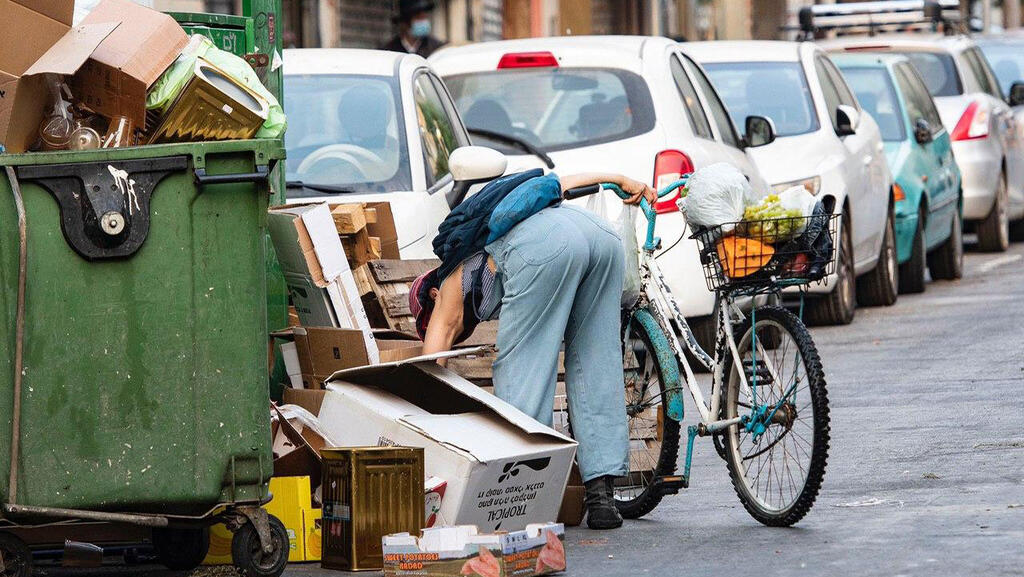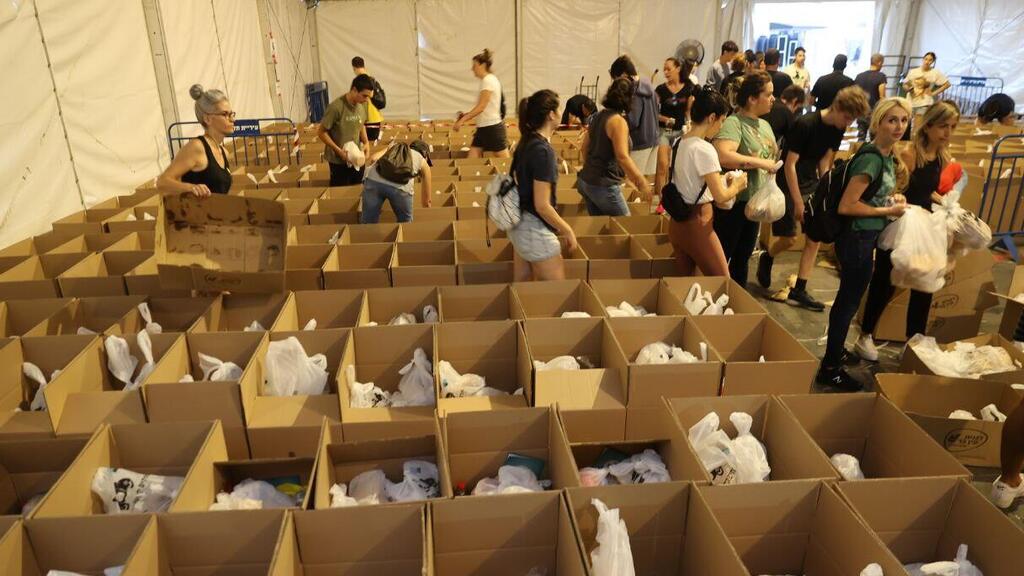Nearly one million Israelis live in food and nutrition insecurity, said a government report published Tuesday.
The National Insurance Institute report said that 522,000 families in Israel live in a state of nutrition insecurity, 265,000 of whom in severe insecurity. Most of those families have children, bringing the total number of individuals to 976,000 (with over 665,000 of them being children).
National Insurance Institute said the survey was conducted in the first half of 2021, before the COVID-induced, unlimited unemployment payments were cut off.
"Findings show that in 2021, the year that followed the outbreak, the level of overall nutrition security has increased," National Insurance Institute said.
The report said that from 2016, the rate of families living in a state of nutrition insecurity has dropped by almost 2%, and the rate of those in severe insecurity has dropped by 0.7%.
"Despite the improvement, 16% of Israeli families and 21% of children live in a state of nutritional insecurity and focus mainly in the southern and northern geographical periphery of Israel, as well as the Jerusalem area. The main swaths of the population in this socioeconomic state concentrate in the Arab sector as well as those living on disability or income allowances."
Professor Ronny Striar, chairman of the National Council for Food Security, said: "There is improvement, but it's miniscule. There is still half-a-million of us living in insecurity. That means people are forced to skip meals. That's nearly 320,000 children who arrive to school hungry."
"The report indicates that those who lived in severe nutrition insecurity before, still live like that today," National Insurance Institute said. "This could have dire consequences on the state of their health. Those who come from a family that is below the poverty line, are 1.7 times as likely to live in nutrition insecurity than those from families above the poverty line.
Prof. Striar said the fight against food insecurity in Israel is taking place on three fronts - the Education Ministry's apparatus that distributes hot meals to elementary school children in need; the national food security initiative that provides solutions to 26,000 families; and various food charities.
"Civilian organizations shouldn't be carrying this load. It requires a governmental solution. Also, the enterprise doesn't provide for the elderly and that needs to change."
Inbal, a mother of two, tells of her struggle: "I work two jobs and am the sole provider. We're at a point that we sometimes have to choose between bread and milk, because there simply isn't enough money for both. Without assistance from organizations like Pitchon Lev (a non-profit that helps destitute families), we wouldn't be able to survive.
"Sometimes I go without eating, but I make sure the kids always have something, but we have to stick to the basics. Bread and cheese. We sometimes have to choose between food and winter clothing. There were days I couldn't even afford diapers for my daughter."
Welfare and Social Affairs Minister MK Ya'akov Margi called the findings of the report "incomprehensible."
I've instructed both my ministry and National Insurance Institute to come up with a plan to eradicate poverty and improve the state of nutrition security. I will push the government to implement the appropriate solutions."
Rabbi Yoav Ben-Tzur, who works at the ministry, said: "We see the most vulnerable part of the Israeli population collapse under the weight of cost of living and are forced to skip meals. Hundreds of thousands of children go to school hungry. We can't tolerate that. We will act on all fronts to make sure families and children never have to skip another meal."
Yarona Shalom, the National Insurance Institute director general, said: "In a developed country, this is a situation that requires legislation to address it. We need to raise allowances and reduce the parameters required to qualify for it. In the upcoming days, the National Insurance Institute will present several new guidelines on the matter."




